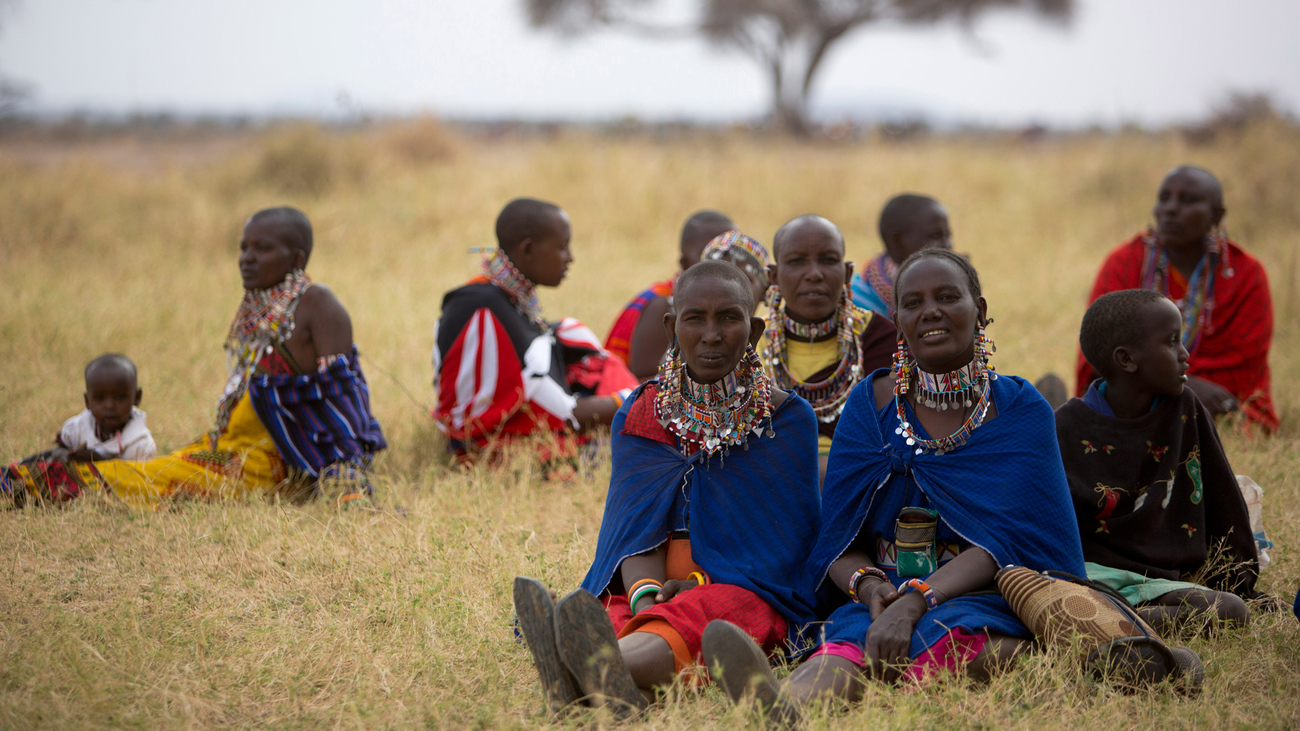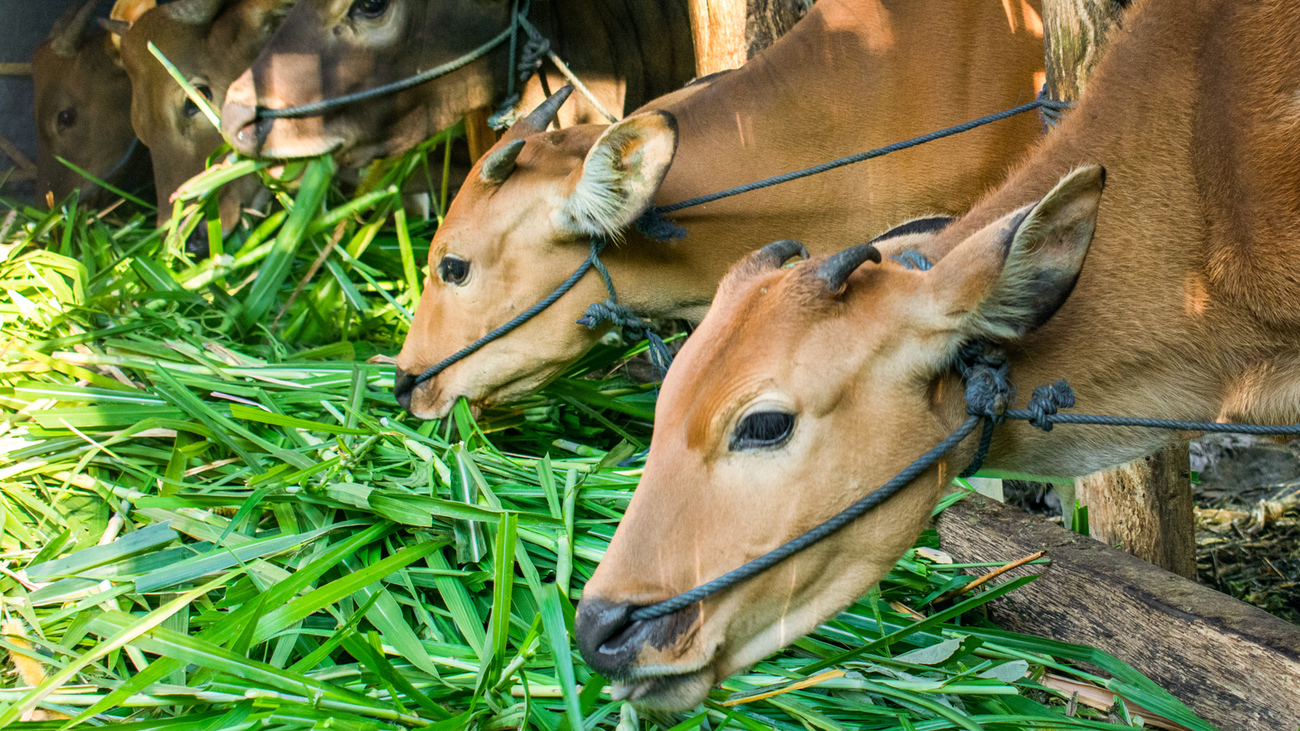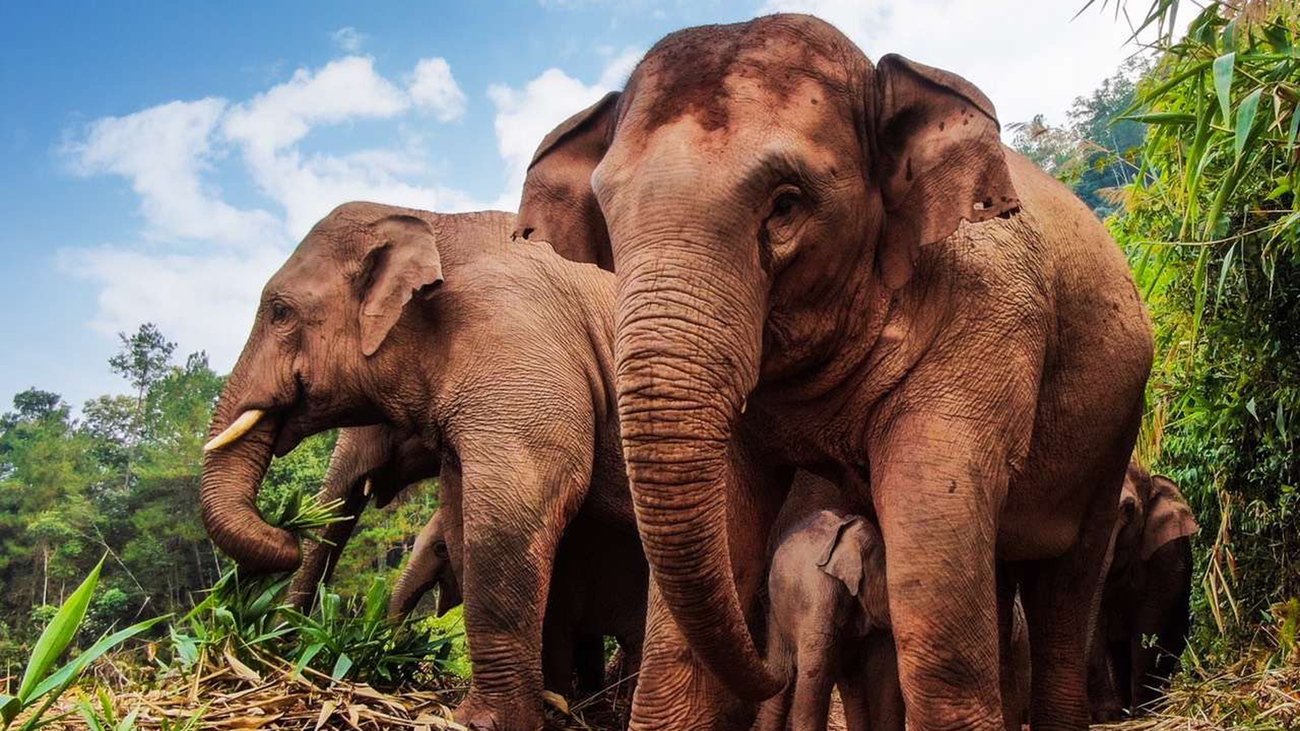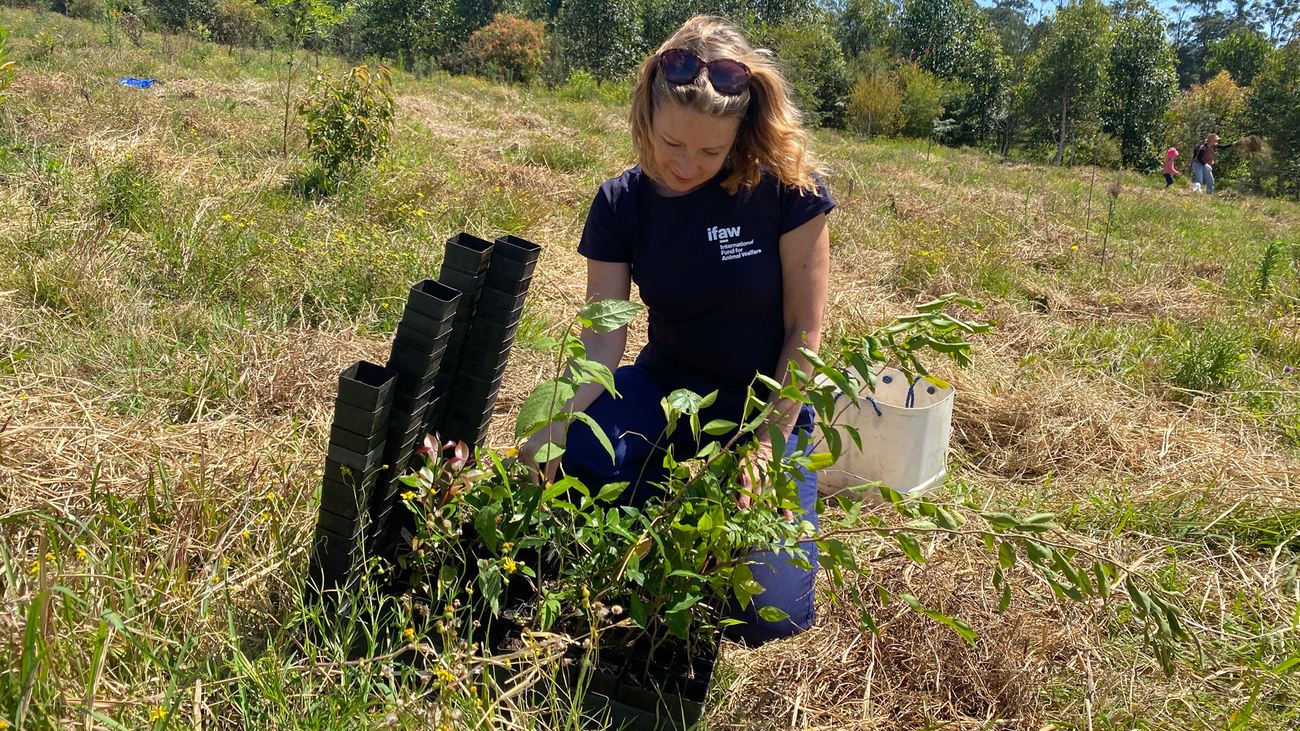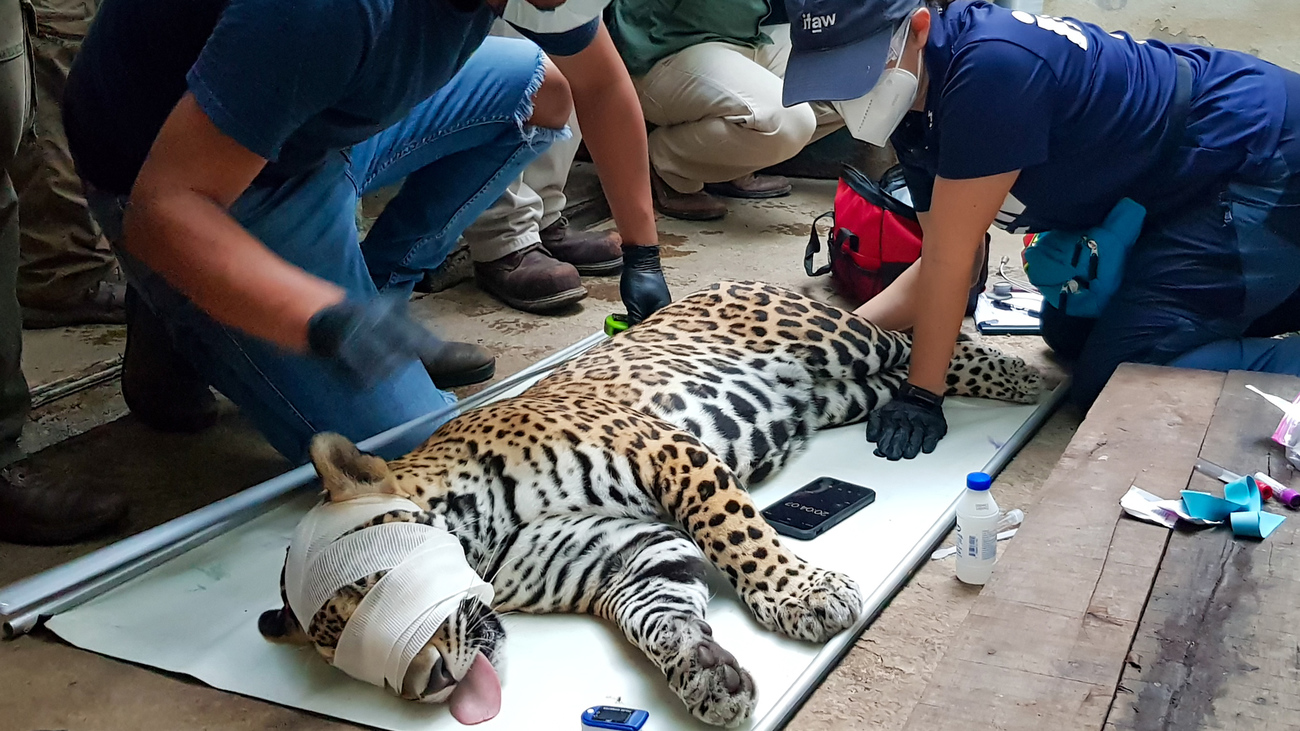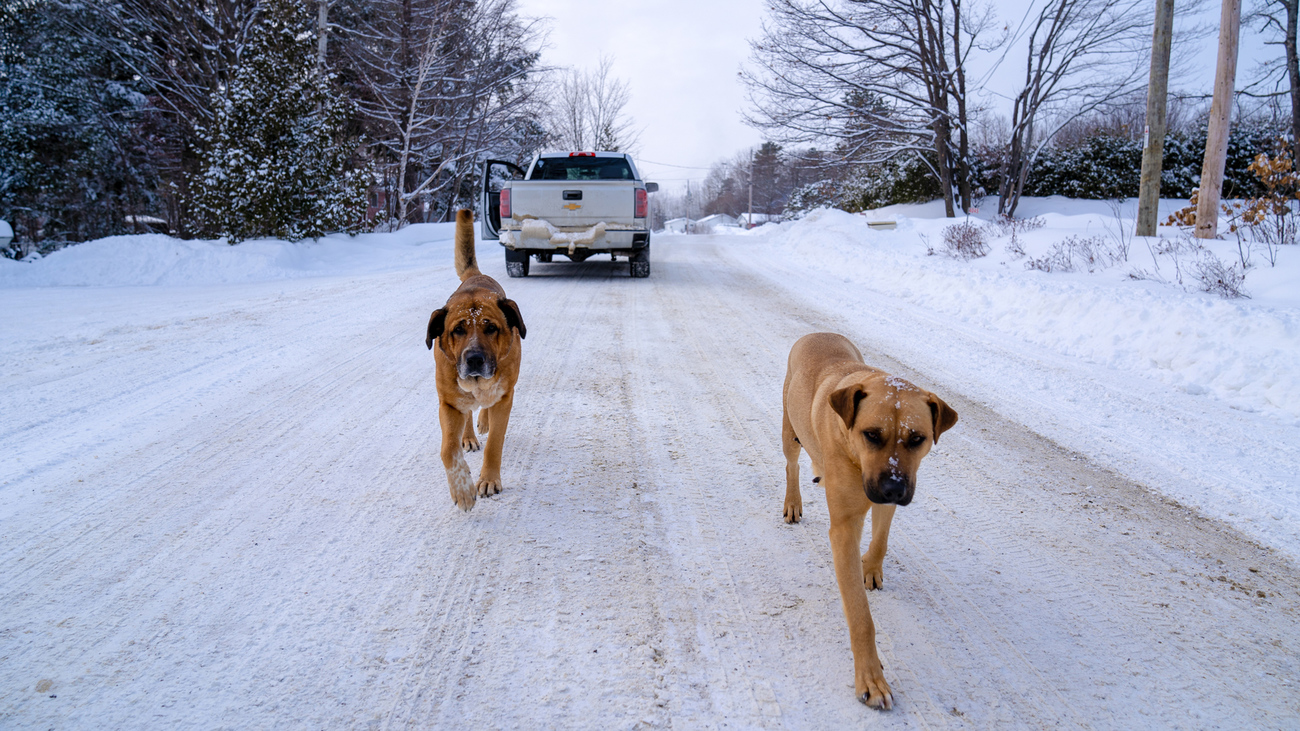community engagement
community engagement
Participative and inclusive community engagement is a core strategy of IFAW’s work around the world. Helping animals and people thrive together relies on local communities participating in, benefiting from and owning the animal welfare and conservation initiatives that affect them. Our approach focuses on solutions such as developing sustainable livelihoods that benefit people, animals and habitats, and co-creating methods of reducing human-wildlife conflict. Community engagement also plays an essential role in preventing wildlife crime by reducing community support for poaching and illegal wildlife trade.
For communities at risk of natural disasters, we work together to improve resilience and reduce reliance on external support. Empowering rural communities to protect community and animal well-being when disaster strikes is more important than ever as climate change increases the frequency and intensity of natural disasters.
In FY21 we continued to inspire and support communities around the world to help animals and people thrive together. What we learn in one community we elevate to encourage other communities and we provide as input for improving public policy.
creating prepared, resilient communities in Indonesia
When disasters strike, marginalized people and animals tend to be hit hardest and feel the impacts longer. Remote communities are often left on their own to prepare for, respond to and recover from disasters, although they rarely have access to the resources and support to do so.
In partnership with the Bali Animal Welfare Association (BAWA), IFAW continues to implement a pilot program in two remote communities in the disaster-prone area of Mt. Agung on the island of Bali, Indonesia. We’re working directly with community members and local governments to imbed disaster risk reduction into village-level systems to build resilience and prepare for future disasters.
Despite the devastating impact of COVID-19, our vital work continued in FY21. The two pilot communities completed participatory risk and hazard mapping to identify potential risks to families and animals. The mapping is helping these communities to continue developing their own locally appropriate solutions to mitigate the risks.
The communities also held a Disaster Preparedness Day during which they planted deep-rooting trees more capable of withstanding landslides. A community fodder nursery was also completed, which will allow residents to try drought- resistant and other climate-adaptable varieties of fodder for their animals.
Our work in the Mt. Agung area began in 2017 when many local communities had to evacuate their homes for months due to a volcanic eruption. IFAW supported BAWA to provide food, water and emergency shelter to hundreds of dogs that were left behind. The communities suffered further because many families were forced to sell livestock for a fraction of its market value.
Years later, these communities have still not fully recovered. Meanwhile, the volcano remains active. Further eruptions, earthquakes, flash floods and landslides remain an imminent threat and families remain fearful about how they and their animals will cope when disaster strikes again.
mitigating human-wildlife conflict by improving financial security
Yunnan is the last remaining habitat in China for around 300 wild Asian elephants, which have gradually moved into regions where no elephants have lived for years, coming into conflict with communities and sometimes causing human injury and even fatalities.
This year, IFAW’s Asian Elephant Project (AEP) and the government of Jinghong mounted an urgent response to elephants that were destroying crops and property in villages across seven counties. The Community Hero Network, a ranger-led initiative, trained more than 30 rangers on techniques to mitigate human-elephant conflict.
These rangers are ambassadors for the conservation of elephants and provide localized, in-depth human-elephant safety trainings to villagers. By the end of August 2021, they had conducted 66 trainings, reaching more than 2,323 villagers. The help of local leadership and officials means villages in all seven counties of Jinghong benefit from in-depth safety training. IFAW also supported the equipment and supplies needed by the rangers to monitor elephant movement.
Elsewhere, we trained 60 tour guides at the Wildlife Elephant Valley Natural Reserve and 70 officers from the Xishuangbanna Natural Reserve in elephant conservation and techniques to promote conservation education to the public.
IFAW also supports communities affected by human-elephant conflict through introducing eco-friendly livelihood opportunities, like beekeeping.
In Daotangqing village, IFAW trained participants in beekeeping techniques, provided hives, honeybees and a sales channel for the honey produced in the communities. After the first year, participating families already saw a 15% increase in their annual income from selling honey. The first group of beekeepers are now eager to share their skills and knowledge with others, benefiting the entire community while making the IFAW project sustainable.
restoring landscapes and saving lives in Australia
The catastrophic “Black Summer” bushfires of 2019–2020 left a long-lasting impact on Australia’s wildlife, landscapes and communities. That’s why IFAW is committed to providing long-lasting support in affected areas.
We have partnered with the Great Eastern Ranges initiative (GER) to empower local communities to be a part of the solution, while also making them resilient to future disasters. Our aim is a holistic approach that works to prevent future disasters, prepares communities to respond to disasters and ensures that infrastructure and competence are in place to rescue, rehabilitate and release animals caught in natural disasters.
Our projects with GER target three priority areas in New South Wales (NSW) and Queensland that were heavily impacted by the bushfires. Important recovery work is being done in collaboration with GER’s network of regional and local conservation groups, private landholders, Indigenous communities and scientific experts.
Recovery activities include providing homes and food for native animals, such as koalas, to engaging landholders in bushfire recovery planning and hosting community forums to build skills, knowledge and resilience. IFAW is also working with local community groups to plant thousands of trees across eastern Australia to restore koala habitat that was destroyed in the bushfires and create new areas for native animals to survive and thrive.
Together with Bangalow Koalas, Zero Emissions Byron, Koala Clancy Foundation and Saving Our Koalas, we planted 16,085 trees across three regions in NSW and Victoria in FY21. Through this work, we created critical habitat for koalas and other native wildlife to call home.
Koalas need trees to survive, so every tree we plant makes an impact. Koalas are a flagship species and by protecting their habitat, we are in turn securing a future for countless other species. By engaging and empowering people to be a part of the solution through tree planting, we are not only creating more places for animals to live, but we are also contributing to combating the impacts of climate change and creating space for animals and people to coexist.
creating coexisting communities of jaguars, turtles, people and dogs
Coexistence with wildlife is essential for all life, humans and animals alike. IFAW’s Casitas Azules project, launched in 2017 in Playa del Carmen, Mexico, is empowering communities with knowledge and tools to reduce interaction between local dogs and wild populations of jaguars and marine turtles. Our solutions focus on addressing concerns and changing human behaviors to reduce potentially harmful interactions.
The challenge in this area is that free- roaming dogs can easily become prey for jaguars or spread disease, such as canine distemper or parvovirus, to the jaguar population. Free-roaming dogs are also known to interfere with endangered marine turtles by disturbing nests, killing hatchlings and attacking nesting adults.
IFAW’s approach with Casitas Azules is to emphasize the connection between human well-being and biodiversity, animal welfare and environmental health. Integrating the dogs more closely into the communities and giving them better care reduces the chance that they will wander and fall prey to jaguars or disturb the turtle populations.
We encourage and support people to keep their community animals, such as chickens, inadequate predator-proof enclosures and their dogs inside at night to avoid conflicts with local wildlife. However, many people do not have the right facilities. In FY21, we supported local communities to build 20 pens or dog houses, bringing the total to more than 130 IFAW-provided dog shelters in the community.
One key part of our approach is wellness clinics that offer vaccination, deworming and sterilization for domestic animals. Despite the added challenges of the COVID-19 pandemic, in FY21 we organized two wellness clinics that treated a total of 286 animals.
To better understand the issues and potential solutions, we conducted a community survey to measure peoples’ attitudes towards jaguars and we mapped jaguar attacks on dogs in two communities. This will provide key input that will help the project reach more people and animals in the years to come.
community engagement with First Nations in Canada through northern dogs
Across Canada, many First Nations people live in rural or remote communities and struggle with a host of human health, safety, social and economic issues as a result of the nation’s colonial history and intergenerational trauma from residential schools. For more than two decades, IFAW’s Northern Dogs Project has been developing and implementing comprehensive dog management programs with First Nations partners that include veterinary clinics and educational materials that fit with how adults and youth live with their dogs, and engaging with leadership to find a path toward humanely managing their dogs for the long term.
Building partnerships that address each community’s unique dog issues, the Northern Dogs Project also aims to create positive relationships with dogs on both an individual and community level. Each year, the mobile field veterinary clinic welcomes more than 500 dogs through its doors. Although COVID-19 ceased the ability to host clinics, IFAW continued to provide critical impact by rehoming dogs and puppies, and developed resources to assist other groups who want to embark on this work. Driving impact through creative programming has allowed IFAW to respond to the needs of the local communities in support of improving the lives of dogs and their people.
Stay in the know. Be ready to act.
You’ll receive news, updates on activities and on future giving opportunities. You can unsubscribe at any time.